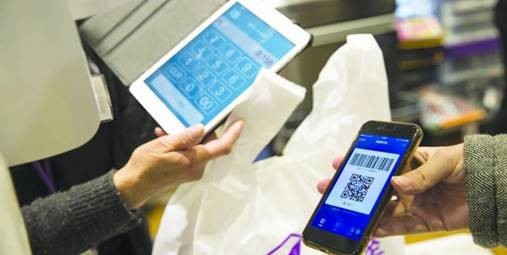
THE initiation of digital banks, which will reduce operational costs, as well as improve digital experience among consumers, is not expected to face any delay as it is a necessity in the new normal — a consequence of the global Covid-19 pandemic.
Financial services assurance partner at PwC Malaysia Kelvin Lee said Covid-19 would be the main accelerator for Bank Negara Malaysia (BNM) to finalise digital banking guidelines by year-end.
Lee said the application process for a digital banking licence is anticipated to start as early as next year.
“The Hong Kong Monetary Authority has announced a grand total of eight virtual banking licence recipients, Singapore (five) and Malaysia up to five. The number is just nice as there are not too many.
“The business model of digital banks in this region is still unproven and new digital banks will want tto experiment as much as possible.
“Therefore, BNM will monitor the progress of the new digital banks under the foundational phase,” he told The Malaysian Reserve (TMR) in a phone interview.
BNM had extended the April 30 deadline for the industry to provide feedback on its proposed digital banking licensing framework to June 30, given the disruptions caused by the outbreak. The central bank initially expected to finalise its policy document by the first half of this year.
Currently, there is a plethora of e-money providers with 42 non-bank providers, according to MIDF Amanah Investment Bank Bhd.
Lee said a good digital banking company does not necessarily come from leading e-wallet players. Although they have an advantage, Lee believes financial technology (fintech) companies have more to offer with better technology adoption.
“With more non-banks showing interest in the digital banking licence, this can only be positive for consumers as these fintech companies offer unique and differentiated financial services.
“Malaysia also can expect applications from various foreign fintech companies. For example, billionaire Jack Ma’s Ant Financial (now Ant Group) has applied for a digital banking licence in Singapore as China’s largest online financial platform steps up efforts to expand outside the mainland.”
Moving forward, Lee said the digital banks, who would be new entrants to the banking industry, will need to build trust with consumers.
“The digital banks will be deposit-taking entities. So, how can the new digital banks convince consumers that their money is safe with these new banks?
“And also how can consumers trust the digital banks to keep their personal data safe and secure?
“Banking is a highly regulated industry and fintech companies should not underestimate the area of banking regulations and compliance.”
Among the parties reported to be interested in the country’s digital banking segment are e-hailing firm Grab Malaysia, telecommunications giant Axiata Group Bhd and gaming firm Razer Inc.
Traditional lenders such as CIMB Group Holdings Bhd, Affin Bank Bhd, Hong Leong Bank Bhd and Standard Chartered Bank Malaysia Bhd have signalled inclination for the licence as well.
Sunway Bhd, a conglomerate involved in property, construction, hospitality, retail, healthcare and leisure, is also said to be keen on securing a digital banking licence after acquiring a 51% stake in Credit Bureau Malaysia.
Mambu APAC MD Myles Bertrand said the traditional banking industry is in need of a shake-up as competition from new fintech companies and non-banks may be just what is needed to improve business.
“We see digital banking as a stepping stone to greater financial inclusion for all and the way to provide greater access to financial services for people who have not had access before.
“Whether that new service is provided by a traditional bank or a new non-bank fintech (company) is irrelevant, it is the end result that really matters,” he told TMR in an email reply.
Mambu is an industry leader in cloud banking and services top-tier banks, major fintech companies and telecommunications firms.
With any new industry, there is bound to be some level of attrition as only the strongest competitors will remain.
“Similar to what we’re seeing now with Malaysia’s e-wallet market, there may be some sense in the smaller digital banking players joining forces and merging services if they find they can’t compete with the bigger institutions. However, only time will tell how this will play out.
“Collaboration is already a key focus for digital banks around the world, with incumbent banks and fintech companies teaming up for various new digital banking products and services with great success,” Bertrand said.
He said there is a huge appetite for digital banking in Malaysia. KPMG Malaysia’s recent Digital Banking report revealed that 82% of people would open a bank account via online platforms, as long as it was regulated by BNM.
The popularity of e-wallets in Malaysia is also another indication of just how ripe the region is for the introduction of new digital banking technologies, he added.
However, Bertrand is a little sceptical if the launch of digital banks in Malaysia would be on schedule as some banks and financial institutions might delay launching new products or brands due to Covid-19.
He said the pandemic has had a huge impact on the banking and financial services landscape globally, particularly the decline in cash transactions, as people are forced to stay home and become wary over the virus-transfer-risk of physical notes and coins.
“We believe that these changes are here to stay. There’s no going backwards now as customers have realised the benefits that they gain from digital banking services and will no longer be satisfied with limited traditional banking products.”
Bertrand added that digital banks and digital banking products need to offer their customers simplicity and speed when it comes to transactions, easy access to their own financial information, as well as trustworthy financial advice.
“Mostly importantly, these products should be accessible to everyone, including small and medium enterprises and micro-businesses that have not been able to access financial services in the past. Digital banks should offer convenience and value, with a simple interface and low cost of use.”
Source: https://themalaysianreserve.com/2020/09/07/covid-19-to-spur-digital-bank-initiation/

